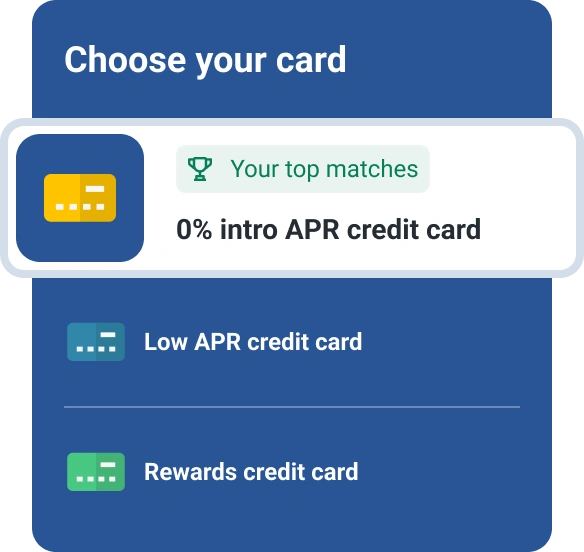Should I Use Savings to Pay My Credit Card Bill?
Quick Answer
While money parked in savings can be used to pay credit card bills, it should only be a last resort if the bill would otherwise go unpaid. It’s ideal to keep savings for emergencies or future goals.

When you find yourself with credit card bills and not much in your checking account, it may be tempting to dip into savings to cover payments. While you can tap into savings to pay your credit card bill—especially if you've got mounting credit card debt and a flush savings account—it's not something you should get into the habit of doing.
Using savings to cover a credit card bill will have a negative impact on your savings goals. Not only that, but it won't address the factors that led to the need to use savings in the first place. Here's what you should consider before using your savings to cover credit card debt.
Why Shouldn't You Use Savings to Pay Your Credit Card Bill?
In general, it's not a good idea to use savings to pay off debt. Here are some reasons why:
It Can Land You in Hot Water if Income Is Inconsistent
If work is inconsistent—whether due to self-employment or a commission-based job—having a healthy savings buffer is vital. With income fluctuations, it's even more important to carefully manage your budget. There may be slower-than-expected months where you need to pull from savings, and using your savings to pay your credit card debt leaves less of a cushion to cover you during times of lower income.
You May Deplete Your Emergency Savings
Even if you receive steady paychecks, there's always the risk of unexpected job loss or other emergency budget-blowing expenses, like a large vet bill or needed car repair. That's why experts recommend saving three to six months of living expenses in an emergency fund. The goal is being able to cover surprise costs in cash rather than go into debt. If you've only just started building an emergency fund, draining it to pay for credit card bills leaves you vulnerable.
You Could Derail Other Savings Goals
It's one thing to dip into savings to pay off a credit card you used to get by in an unexpected crisis. It's another to pull away money from specific goals for your future, such money saved for a home down payment.
Your Debt May Return Due to Overspending
Putting a critical expense on a credit card can work if you don't have enough in checking or savings, and you're confident you can pay it off. But avoid using credit cards to cover discretionary purchases you otherwise couldn't afford (think travel, clothes and impulse buys). If you're in debt due to this type of overspending, tapping into savings to pay it off could be a band-aid that reinforces negative habits. It's also unsustainable if you're not replenishing savings—and could leave you in the lurch later.
What Happens if You Don't Pay Your Credit Card Bill?
Paying your credit card bill with your savings isn't ideal, but if it's your only way to cover a credit card payment, it might be worth it. You want to avoid missing bill payments to protect your credit health.
If you're late on a credit card payment, your issuer may provide a grace period to submit it without penalty. After that time has elapsed, you may be charged a late fee. If you pay the minimum balance before it's 30 days past due, you won't experience credit damage and could get the fee waived.
Once payments go unpaid longer, 30 days or more, issuers can report the payment as past due to the three consumer credit bureaus—Experian, TransUnion and Equifax. Once a late payment is on your report, your credit score will likely drop significantly.
A one-time late payment will lower your credit score and stay on your report for seven years, and repeated late payments or missed payments can drag your score down even further. The longer a bill goes unpaid, the more damage it can do. If your bill is unpaid for over two months, your issuer may raise your interest rate to the penalty APR, which most credit card issuers cap at 29.99%.
If you completely stop paying a credit card bill you owe, the issuer may eventually close the account and send it to collections, doing additional damage to your credit. The creditor or their collection agency can also sue you for unpaid debts.
Alternative Ways to Pay Your Credit Card Bill
Rather than using savings to pay your credit card bill—or not paying it at all—here are some strategies to make sure you can pay your bill. Not all will work for everyone, but many can be combined for faster progress.
- Cut or reduce some of your expenses. Reducing spending, even temporarily, frees up cash for credit card bills. You can review recent statements to see where your money's going, and spot opportunities to cut discretionary expenses (like food delivery, streaming subscriptions and events). Create a budget to pay off debt and put those recouped dollars toward your credit card bill until it's paid off. After that, you could slowly start to bring back some of the expenses you eliminated, with a careful eye toward making sure you don't accrue too much debt once again.
- Earn extra income. Rather than emptying savings to pay your bill, consider taking on extra work temporarily in your free time. There are countless gig apps that make it possible to earn income on your schedule doing tasks like walking dogs, delivering groceries and giving rides.
- Strategize debt payoff. To make a bigger dent in your debt balances, try a specific payoff strategy. There are many methods to choose from, such as the debt snowball method, which prioritizes lowest-balance debt first, providing some quick wins. Or you may prefer the debt avalanche method that prioritizes debts with the highest interest rates, which can save you more over time.
- Transfer your balance. For cardholders with high balances and interest rates, consider using a balance transfer credit card. They usually have an introductory 0% APR period, giving you a window to transfer debt and pay it without new interest accumulating. Remember that the window is limited, usually 12 to 21 months, after which the APR jumps to the card's standard rate; it will also likely require a balance transfer fee of 3% to 5%. Another option is a debt consolidation loan, which streamlines all debts into one monthly payment, typically with a lower interest rate.
- Borrow from a friend or family member. This strategy can be risky, but borrowing money from a loved one on a one-time basis could be helpful if you're low on options and want to lower your balance. Just make sure to formally document your agreement and stick to the repayment terms to reduce future conflict.
The Bottom Line
Facing a steep credit card bill is stressful, especially if you feel like your only option for paying it is savings. Regardless of how you pay your bill, just make sure you do pay it—ideally on time, every time. Not only do these on-time payments significantly help your credit score, but so does reducing your debt balances. If your credit score has taken a hit lately, using Experian Boost®ø lets you get credit for payments for utilities, streaming services and even rent.
Don’t apply blindly
Apply for credit cards confidently with personalized offers based on your credit profile. Get started with your FICO® Score for free.
See your offersAbout the author
Emily Starbuck Gerson is a freelance writer who specializes in personal finance, small business, LGBTQ and travel topics. She’s been a journalist for over a decade and has worked as a staff writer at CreditCards.com and NerdWallet. Emily’s work has appeared in CNBC, MarketWatch, Business Insider, USA Today, The Christian Science Monitor and the Chicago Tribute, among other websites and publications.
Read more from Emily Starbuck

